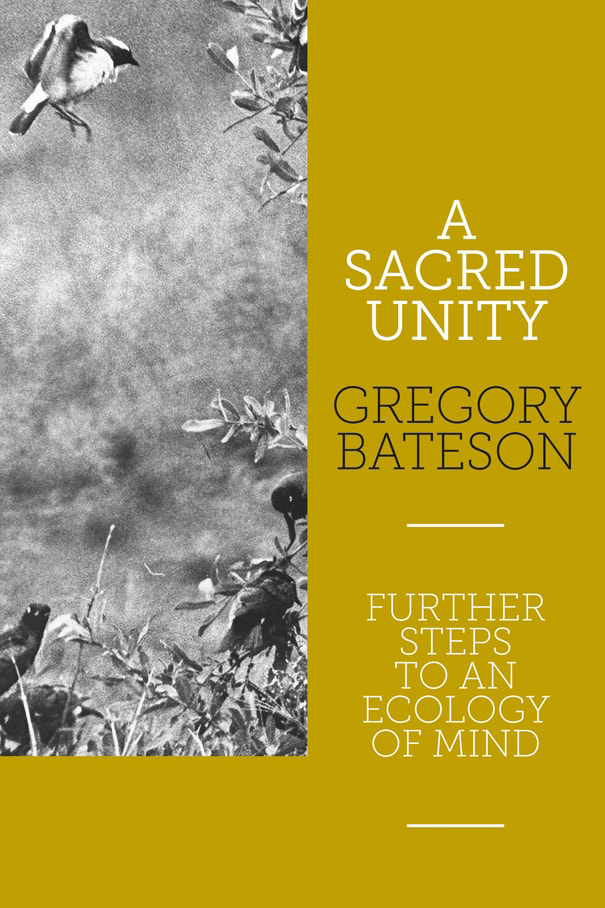Back in print: print and ebook copies available now
Previously published by Harper Collins - this is a revised and updated new edition with an important introduction by Nora Bateson and Stephen Nachmanovitch
|
Publisher: Triarchy Press
Publication: June 2023 List Price: £25 use code to save £5 Format: Paperback, 376 pages Size: 23.4 x 15.6 cm ISBN: 978-1-913743-79-6 Tags: Anthropology; cybernetics; systems thinking; ecology; psychology; linguistics; evolution; communication About the author: Gregory Bateson Save 20%
on the list price when you buy direct from us. Use code tpdirect at checkout for a 20% discount. Buy the paperback (£25)
|
A Sacred Unity
|
ReadershipA Sacred Unity is a synthesis of Gregory Bateson's work over half a century. It's a wonderful and challenging introduction to his work and thinking for anyone whose ears might prick up at the words "ecology of mind".
Reviews“A Sacred Unity in this new edition comes at a profoundly consequential moment. Perceptual distortions–always with us–are now threatening humanity itself and the entire biosphere. In the face of such muddle and danger, Gregory Bateson provides deep wisdom, explaining how living things and their relationships connect to the whole. This is not an easy book but it is one that richly rewards the careful reader with fresh understanding of what it means to be human in a world of biological and natural systems.”
Jerry Brown California Governor, 1975-1983; Executive Chair, Bulletin of Atomic Scientists, 2011-2019 "...a magnificent manifesto bringing mind and matter together. In this timely book of timeless wisdom, Gregory Bateson elucidates the existential truth of life: relatedness. We don’t have five disconnected fingers, we have four interconnected relationships! Read this groundbreaking book, it can help us to transcend division, domination, conflict and desire to control.”
Satish Kumar Founder, Schumacher College and Editor Emeritus, Resurgence & Ecologist “This extraordinary collection of the thinking, life, and work of anthropologist and systems thinker Gregory Bateson has enormous relevance for today. A groundbreaking book for all time.”
Roshi Joan Halifax Abbot, Upaya Zen Center, Santa Fe, NM Also available:
|


